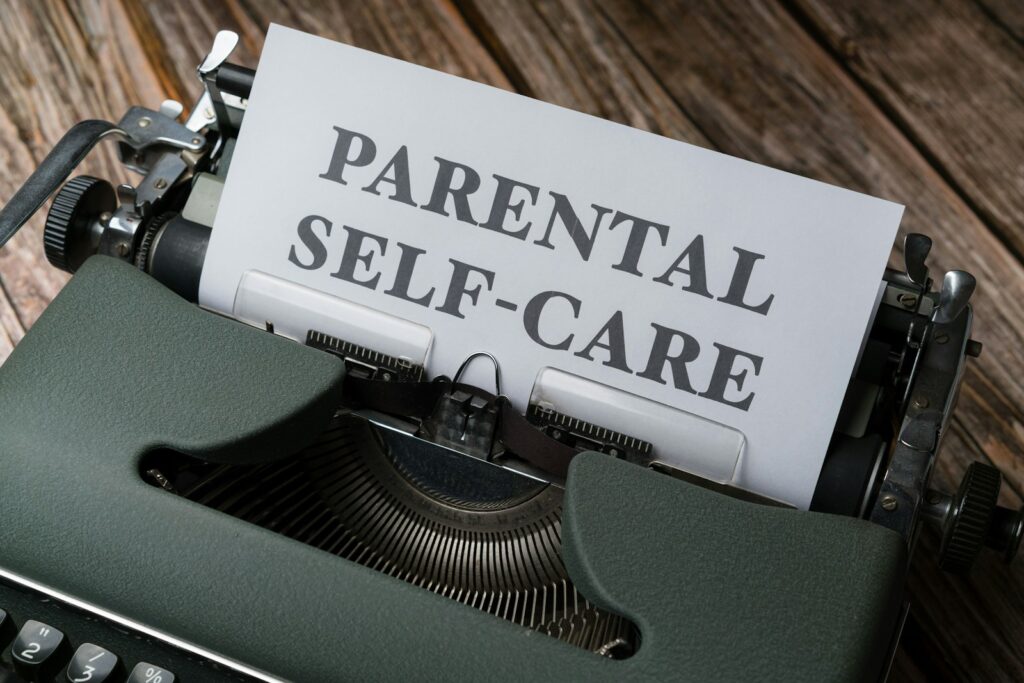Parental Anxiety: Understanding and Managing Your Worries as a Parent
Key Takeaways
- Parental anxiety is more than everyday worry.
- Signs of parental anxiety include overprotectiveness, rumination, exhaustion and a harsh inner critic.
- Parental well-being directly influences a child’s emotional development and coping skills.
- Practicing self-care, setting realistic expectations and find balance can reduce anxiety and improve your relationship with your child.
- Seeking support from friends, family or a therapist benefits both parent and child.
What is Parental Anxiety?
Parental anxiety is the ongoing fear that something bad will happen to your child, whether that’s about their health, safety or emotional well-being. It goes beyond everyday worry. While every parent worries from time to time, parental anxiety feels more constant, often interfering with daily life and relationships.
You’re not alone if this sound familiar. A Pew Research Center survey found that 40% of U.S. parents are “very” or “extremely” worried that their children might struggle with anxiety or depression. These worries even outrank concerns about bullying, drug use and academic performance. With today’s technological advances (AI and social media) there is validity in these concerns.
Understanding Parental Anxiety
Parenting comes with an endless list of responsibilities but for some, the worry becomes overwhelming. And if you struggled with anxiety before having children, becoming a parent may intensify those feelings. A certain amount of concern is natural, after all, you love your child and want to protect them.
Signs and Challenges of Parenting with Anxiety
Parental anxiety can show up in different ways, including:
- Feeling overly protective or avoiding situations that feel risky.
- Difficulty making even small parenting decisions.
- Constant replaying worst-case scenarios in your mind.
- Struggling with mental, emotional and physical exhaustion.
- A harsh inner critic telling you that you’re not doing enough.
These patterns can create cycles of overthinking. Parents often describe lying awake at night stuck in a loop of “what if” thoughts. This type of mental spiral, known as rumination, not only fuels anxiety but drains your energy. If this sounds familaiar, you may find my blog, Are You a Ruminator?, helpful.
How Anxiety Impacts the Parent-Child Relationship
Parental anxiety can influence how engaged and emotionally available you are with your child. Being preoccupied with worries may make you seem distant or less responsive. While children are resilient, they benefit from having parents who are present, attuned and responsive to their needs.
Research shows that parental well-being and child well-being are deeply connected. A clinical study published in PubMed found that parental mental health factors, such as attachment anxiety in mothers and attachment avoidance in fathers account for 42% of the variance in children’s anxiety levels. This means that when parents struggle with anxiety, it can shape how their children learn to cope with fears and challenges. In addition, children learn through modeling, which is the act of observing and imitating behaviors. As parents, you are their primary models for learning new behaviors.
Even if you feel you’ve been emotionally unavailable at times, every moment moving forward is another opportunity to repair and strengthen your bond with your child.
Strategies for Managing Parental Anxiety
1. Practice Self-Care
If you’re running on empty, it becomes harder to care for your child. Self-care doesn’t require hours of free time, sometimes taking five to ten minutes is enough. Journaling, practicing yoga nidra, deep breathing or taking a short walk can recharge your energy.
For more ideas, you may want to explore my post, Running on Empty: Essential Self Care Tips to Recharge Your Mind and Body.

2. Set Realistic Expectations
You don’t have to be Wonder Woman or Superman. Trying to do everything perfectly will only lead to disappointment, frustration and stress. Instead:
- Accept that you can’t do it all and that’s okay.
- Ask for help or take breaks when needed.
- Encourage your child’s independence. Teaching them to clean up after themselves as early as age two helps build competence and confidence as well as taking one responsibility off your plate.
Setting boundaries around your time and energy is not selfish, it’s a healthy way to protect your well-being.
3. Find Balance and Self-Compassion
Balance comes from being intentional about how you manage stress. Instead of focusing on what you can’t do, acknowledge the small wins. By acknowledging progress instead of perfection, you build confidence and reduce stress. Self-compassion, treating yourself with the same kindness you’d give a friend, also reduces anxiety and relieves frustration.
4. Seek Support When Needed
Sometimes, parenting anxiety can feel too heavy to manage alone. Talking with a trusted friend, family member or therapist can help you gain perspective and strategies.
If you’ve noticed anxiety showing up in your child, support is available for them too. You may find it useful to read my guide on how to find a therapist for your child.
Final Thoughts
Parental anxiety can feel overwhelming but it doesn’t have to control your life or your relationship with your child. By understanding your worries, prioritizing self-care, setting realistic expectations and seeking support when needed, you can manage anxiety in ways that benefit both your and your child. Remember you well-being directly influences your child’s emotional growth, resilience and sense of security. Every small step you take toward managing your anxiety is a step toward a calmer, more confident and connected family life. You don’t have to navigate this journey alone, whether through self-care strategies or seeking professional guidance, support is available to help you thrive as a parent while nurturing your child’s development.
Frequently Asked Questions
Parental anxiety is the ongoing fear that something bacd will happen to your child, such as concerns about their safety, health or emotional well-being. Unlike typical worry, parental anxiety can interfere with daily life and relationships.
Research shows that parental anxiety can influence a child’s emotional development. Parents who struggle with anxiety may appear less emotionally available but modeling health coping strategies and managing your own anxiety can improve a child’s resilience and sense of security.
Signs include overprotectiveness, avoiding situations that feel risky, difficulty making decisions, constantly replaying worst-case scenarios, feeling mentally and emotionally exhausted and having a harsh inner critic.
Effective strategies include practicing self care, setting realistic expectations, finding balance and self compassion and seeking support from trusted friends, family or a therapist.
Yes, many parents experience repetitive “what if” thoughts, which can drain energy and worsen anxiety. Learning strategies to manage rumination can be highly beneficial.
If parental anxiety is overwhelming, persistent or affecting your ability to care for yourself or you child, it’s important to reach out to a mental health professional. Early intervention supports both parent and child wel-being.

Judy Wang, LCPC, CPC
Judy Wang is a Licensed Clinical Professional Counselor in Maryland, Nevada, South Carolina, and Vermont. She is EMDR Certified and trained in Exposure and Response Prevention (ERP) for Obsessive-Compulsive Disorder. With over a decade of experience, Judy specializes in helping individuals navigate anxiety, trauma, OCD, and people-pleasing patterns. She provides personalized care for teens and adults seeking deep, long-term healing and emotional wellbeing.
